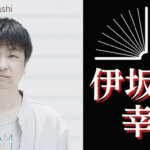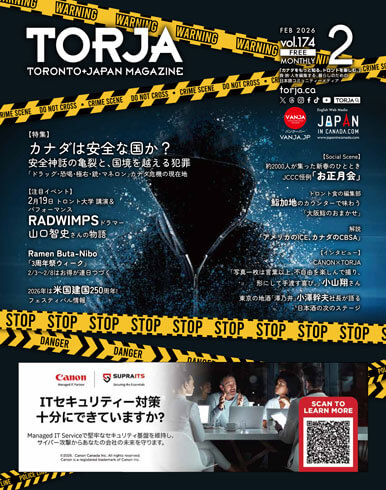“Shusenjo: The Main Battleground of the Comfort Women Issue” is perhaps one of the most controversial Japanese documentary films created in recent years. Having drawn great attention from Critics Viewers even before the film became available to the public, it became a huge hit, despite being an art-house, low-budget documentary film. The fact that the director is being sued by big-name history revisionists, who make appearances in the film, seeking to stop showings at theatre, only adds fuel to the fire. The film is screened at 47 venues in Japan since April 20th this year and have frequently been sold out, thus, attracting the attention of media—which most of them, tend to avoid the issue of comfort women, aka wartime sex slavery.
The “comfort women” issue is one of Japan’s most contentious diplomatic quandary and the issue is dividing the country across clear ideological lines inside Japan. Supporters and deniers are caught in a relentless battle over empirical evidence, the validity of oral testimony, the number of victims, the definition of sexual slavery and of coercive recruitment. This largely domestic battleground has been shifted to the international arena, commanding the participation of states and institutions from all over the world.
Supervisor Campos, “Shame on you” 4 times at San Francisco City Committee to a denier
Now, the neo-nationalist movement in Japan and its political allies in the US are striking back. With Japanese prime minister, Shinzō Abe and his conservative party’s grip on power, the neo-nationalists and their ideology of restoring glory to Japan’s military past have gained traction.
At the core of the film by Miki Dezaki, a Japanese-American film director, are his interviews from both supporters and deniers of the issue. Dezaki, who was a graduate student of Sophia University when he made the film, got caught in the crossfire himself when he started posting videos on his YouTube channel about contemporary Japanese society, including the comfort women issue. An American YouTuber known as “Texas Daddy” started attacking him online. While trying to figure out why he and many Japanese netizens were vehemently fighting to delegitimize the testimonies of the former comfort women, Dezaki set out to understand why a network of revisionist, misogynist and racist neo-nationalists work together, and why it is important for them to silence the women who demand justice for the sexual labor they were coerced into during World War II.
“Comfort Women” Should No Longer be Silenced
What is referred to by the term “comfort women issue” is a system set up by the Japanese army between 1932 and 1945, when Japan occupied large parts of East and Southeast Asia, including Korea, the Philippines and the former French Indochina, and forced women from occupied countries to become military comfort women. While no official record of how many women were part of the “comfort women” system, it is widely reported that an estimated 200,000 women from the Korean Peninsula, China, Philippines, Indonesia, Vietnam, and other Asian and Pacific Islander countries were enslaved. Though most of those who were coerced to serve sexual services to the Japanese soldiers have passed away, some are still alive, fighting for recognition and compensation.
Unlike other comfort women-related documentaries, “Shusenjo” does not include many testimonies of victims. “There is one reason why I did not put in more of their testimonies,” he told the Korea Times. “It’s because Japanese people do not trust testimonies anymore. Both young and old people in Japan now think Korean people, or Korean women, cry and manipulate people’s emotions to believe them. I need to appeal to their logic.”
Here’s a clip of a story of Kim Bok-Dong by Asian Boss to give you the glimpse of the traumatic experiences she had during the war.
Why It Still Matters
South Korea and Japan have had strained relationship in decades, due to Japan’s wartime crimes against Koreans during colonial era. South Korea reached a settlement with Japan to resolve the dispute in 2015, in which Japan provided 1 billion yen to a fund, which was given to the Korean counterpart, to silence the victims rather than paying it to the victims. Victims said the apology was not sincere, and Seoul’s current administration said in 2017 that the deal was flawed.
This February, South Korea’s National Assembly Speaker Moon Hee-sang said in an interview with Bloomberg that Japanese Emperor Akihito, “as the son of the main culprit of war crimes”, should apologize to the women before he steps down at the end of April and highlighted the need for Tokyo to show a “sincere attitude” to heal wounds of the sufferers. In response, Japanese Chief Cabinet Secretary Yoshihide Suga said, at a news conference in Tokyo, that Moon’s comments were “extremely regrettable,” “We strongly protested as his remarks have absolutely inappropriate content and are extremely regrettable,” “At the same time, we demanded an apology and withdrawal of his remarks.”
The Japanese government still refuses to confront its own war crimes today, insisting that the compensations has been settled and deny the atrocities that took place. This refusal to adequately address past wartime brutalities, primarily committed against women is not only a disgrace to the victims but permeates how women are viewed in society today.
Most of Japanese Don’t Know about “Comfort Women” Issue
Many Japanese citizens don’t know of the atrocities these women suffered from. Behind this issue, here is a serious problem with the constitutionality of the governmentally-approved textbook.
A system was introduced to Japan after World War II to avoid government having direct authority over the written contents, and school textbooks in Japan. For all subjects in elementary and both lower and upper secondary schools, the textbooks are written and published by several major private companies today. Japan’s School Education Law requires schools to use textbooks that are authorized by the Ministry of Education; however, each local education board has the final authority to select which textbooks can be used in their jurisdiction from the approved list. This government textbook authorization system has been used to reject textbooks that depict Imperial Japan in a negative light, which includes the Nanking Massacre, war crimes, Unit 731 and comfort women issue was rejected by the Ministry of Education.
A comparative study begun in 2006 by the Asia–Pacific Research Center at Stanford University on Japanese, Chinese, South Korean and US textbooks describes 99% of Japanese textbooks as having a “muted, neutral, and almost bland” tone and “by no means avoid some of the most controversial wartime moments” like the Nanjing massacre or to a lesser degree the issue of comfort women.
The ‘Battleground’ Shifts from Japanese Theatres to Courts
On May 30th, three of those who appear in the movie held a news conference in Tokyo, claiming Dezaki deceived them when he persuaded them to appear on camera, calling for a stop to showings of the film and demanding damages totaling 13 million yen from the director and the film’s distributor, Tofoo. The participants include Nobukatsu Fujioka, vice chairman of the Japanese Society for History Textbook Reform, which wants history textbooks to reflect the view that the government during wartime did not coerce women to work as sex slaves but they were “professional prostitutes”. This view is disputed by South Korea as well as by many Japanese scholars.
The participants claim that they believed the interviews were part of Dezaki’s academic research, who was a graduate student at the time. They claim the footage was edited “unfairly” as to distort their views and call the movie “a grotesque piece of propaganda”.
In a Tokyo Shimbun article, published on May 31st, Dezaki denied that he misled his interview subjects and the release forms they signed clearly included the possibility that the resulting footage could be publicly shown. During a news conference, on June 3rd, Dezaki responded to the charges by insisting that some of the interview subjects had an opportunity to raise their objections before the film’s release. He sent two of them edited footage of their respective interviews and invited them to pre-release screenings; however, no one voiced dissatisfaction until after the movie was in theaters.
Dezaki claimed that Shunichi Fujiki, Manager of “Texas Daddy”, who is also among the plaintiffs, admitted to having congratulated Dezaki on his accomplishment after the director informed him that the movie was submitted to a film festival in Busan, South Korea. Fujiki now claims that Dezaki breached the statement of mutual agreements he signed and his comments were used out of context.
“Texas Daddy” holds an imperial flag of Japan next to Peace Monument of Glendal which is a replica of the original comfort women statue located in Seoul, South Korea. He also captured a photo of the statue with a bag over its head.
He also created a video on YouTube to respond to the charges.
Director Bio
Miki Dezaki is a recent graduate (March 2018) of the Graduate Program in Global Studies at Sophia University in Tokyo. He worked for the Japan Exchange Teaching Program for five years in Yamanashi and Okinawa before becoming a Buddhist monk in Thailand for one year. He is also known as “Medamasensei” on Youtube, where he has made comedy videos and videos on social issues in Japan. His most notable video is “Racism in Japan,” which led to numerous online attacks by Japanese neo-nationalists who attempted to deny the existence of racism and discrimination against Zainichi Koreans (Koreans with permanent residency in Japan) and Burakumin (historical outcasts still discriminated today). “Shusenjo” is his directorial debut.
Website of film “Shusenjo”: https://www.shusenjo.com/
Trailer to film “Shusenjo”: https://youtu.be/OtNuze8mNUQ















































